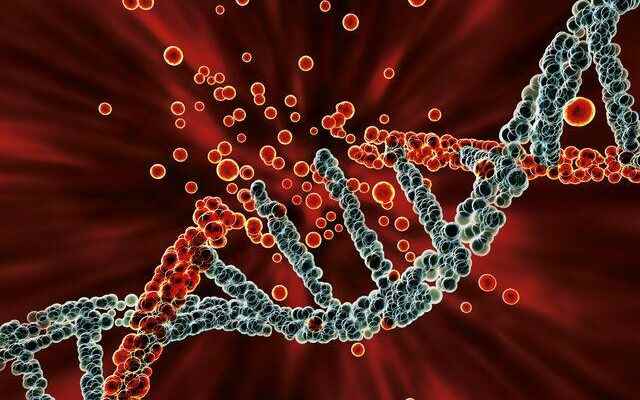Medical Oncology Specialist Assoc. Dr. Veysel Haksoyler said that the main reason for the formation of cancer is the deterioration of DNA, which is the genetic structure, due to congenital or subsequent factors. Haksiyonlar, “If there are individuals with cancer in your family, your risk of developing cancer increases. However, toxic substances, radiation, some viruses and some diseases that you have been exposed to throughout your life can also cause cancer. Haksoyler listed the factors that lead to the formation of cancer in general as follows:
AGE
The prolongation of life expectancy and the increase in the aging population are seen as the main reasons for 1 out of 3 people to be diagnosed with cancer during their lifetime. As our cells age, they become more susceptible to cancer. In the course of time, the DNA damage that occurs with the damage of the cells by carcinogenic factors cannot be effectively repaired, and the immune system is weakened. As a result, abnormal proliferation may develop in the cells.
ENVIRONMENTAL FACTORS
Environmental factors play a role in the development of cancer either voluntarily (smoking, etc.) or unwillingly (breathing polluted air, etc.). Studies have shown that carcinogens such as aflatoxin, arsenic, asbestos, benzene, beryllium, cadmium, coal tar, respirable silica, formaldehyde, chromium, coal smoke, nickel, radon, passive cigarette smoke, soot, sulfuric acid, and uranium cause 4 percent of cancer-related deaths. shows that he is responsible. Radiation is also an important risk factor for the development of cancer. Ionizing radiation used in imaging and treatment is carcinogenic.
TOBACCO USE
Smoking is the single most important cause of cancer. Smoking is responsible for approximately one-third of all cancers in humans. There are more than 250 harmful chemicals and carcinogen derivatives, mainly tar, in tobacco and its smoke. Apart from smoking, smoking pipes, cigars or chewing tobacco and taking snuff also increase the risk of cancer.

CHRONIC INFLAMMATION
Viruses generally activate the pathways that enable growth and proliferation in cells, on the other hand, they cause suppression of products that prevent tumor development. It is possible to cite Helicobacter pylori and Hepatitis B and C as examples of agents that cause this type of cancer development. In particular, hepatitis B virus is the second most common cause of cancer in the world after smoking. HPV virus can also be transmitted sexually and cause cervical cancer, penile cancer, mouth and larynx cancers.
FAULT NUTRITION
It is known that one third of all cancers are caused by diet. Excessive consumption of oil and fatty foods, insufficient consumption of fresh vegetables and fruits, low fiber intake, foods with nitrite and nitrate added, meat cooked very close to the fire, excessive consumption of salted-smoked foods and genetically modified foods also increase the risk of cancer.

OBESITY
Excess calorie intake is one of the factors that cause cancer. Obesity is a factor in the development of many cancers in men, including cancer of the colon and rectum (large intestine), kidney, esophagus and pancreatic cancer. In women, obesity-related cancers can be listed as bladder, bowel, uterus, kidney, pancreas, esophagus and especially postmenopausal breast cancers. In addition, obesity in infancy and early childhood increases the risk of cancer in adulthood.
WEAK IMMUNITY SYSTEM
Atypical cancer cells occur in our bodies every day. But this does not mean that we are cancer patients. Our immune system instantly catches these cancer cells that occur every day and destroys them before the disease develops. However, a weakened immune system can make our body vulnerable to cancer.
HORMONES
Studies have shown that hormones have positive or negative effects on breast cancer, ovarian, endometrium and intestinal cancers.
(UAV)
